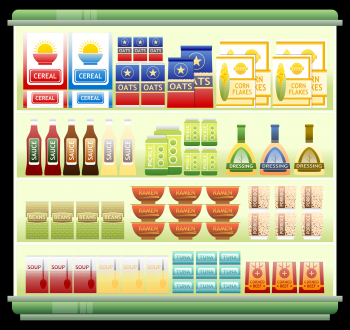Users Who Spiked

HOME ORGANIZATION STRATEGIES: FASHIONING HEALTHY HOME GUIDELINES (PART TWO)
Private Notes
Private Notes
Notes
Are you making progress in getting organized? Alternatively, do you need some ideas to help get started? In this two-part series, we discuss ten guidelines to help you.
Part One Review
Creating healthy organizational strategies help us to keep our home more organized, making life easier for us. In part one of this series, we discussed the following ideas:
· Create a system that works for you and your family.
· A rule is a prescribed guide for action, procedure, or habit.
· "Home base rules" can help us be more structured and in control.
· For any home system to work, we must have room for forgiveness and grace when routines don't go as planned. This one guideline will decrease stress and pressure in the area of getting organized.
Create Your Home Organization Strategy
Taking time to create our home organization strategies will help us organize our home. Moreover, home base rules help us to stay organized over a more extended period. In the last article in this series, we covered five rules we can put into place in our home:
· Give unneeded or excess items away.
· Decide to implement a "limit" on the number of items we can have in the home (for example, ten outfit limit).
· Downsize to one junk drawer in the home.
· Consider having a family or neighbor swap to exchange unneeded items.
· Face the fear (also known as an anxious concern) you have in the area of organizing, decluttering, and "letting go" of excess items in the home.
Five Additional Home Base Rules To Consider
Now, we will talk about five additional "rules" you can put into practice to help you become more organized. To read part one in this series, visit
Home Organization Strategies: Part One
So, let's get started! Consider adding these principles to your home organization strategies:
Use What You Have On Hand – This principle can apply to different areas. If you have unused food items in the pantry, create a menu plan which includes as many food items as possible. For example, if you have ten bags of pasta you purchased on sale, then create several different dinner recipes for the month, which include pasta.
Alternatively, if you tend to gather multiple bottles of shampoo, use what you have on hand before buying more. In the process, you can also save money by not buying more.
Purge Home Items Regularly – Set a time frame for purging items regularly. You may decide to go through one room of the home each month to purge. Alternatively, you may choose a quarterly timeframe (every three months) to go through a specific area of your home.
If you have young children, set a time interval (such as once every three months) to go through toys and minimize. Again, create a system which works for you and make adjustments if needed. Purging unneeded items more often will generally make the task shorter and help you stay in control of the "chaos."

Intentional Focus On Zones – When decluttering for the first time, intentionally focus on zones. For instance, deliberately focus on decluttering the kitchen until all is done in that area of the home. Staying focused on one area until the task is complete will help you not to "jump from one task to another and more."
Planned focus can also be used during cleaning sessions. Focus on one area until all cleaning is done in the specified location. By doing this, you feel a sense of accomplishment and become more motivated to move to the next area.
Ask For Family Help – Considering asking for help if decluttering and organizing is overwhelming for you. Sometimes, it is hard to ask for help. However, it may be one of the best answers to your organization challenges. If possible, ask a family member who is encouraging and motivating.
You can even ask a best friend for help and for suggestions on how to organize more effectively. Additionally, online support is an option if you enjoy being social in groups, forums, and organized chats.
Be aware of your time, so it does not get away from you. For example, Facebook groups can be a great place of support. However, being on Facebook can become a time drain when you have many things to accomplish. Set a timer for the "time" you are allowing yourself to visit the group.

Give Yourself Permission – Emotion attachment can play a substantial role when letting go of items. To continue moving forward, it is essential to give yourself permission – permission to donate items and authority to take a break if you get overwhelmed. Give yourself permission to pack things up and to put them in storage for a short time. Then, decide to donate the items on a specific date.
Finding A System Which Works
The most crucial factor in creating home organization strategies is to find one which works for you and your family. Every family is unique as well as each individual. It's okay if one approach does not work well; try another one and continue to move forward.
Let Go & Take Your Life Back
I encourage you to let go of extra stuff you don't need and take your life back. Also, create a space for "you" in the home. If you love to do crafts or make jewelry, create a space just for you. Have your area to do the things you love. Zero in on other areas of your life which needed to be minimized. You are important, too!
You Can Do This!
You can do this! Take one step at a time. If you have accumulated many things over a long period, you won't be done tomorrow (speaking from experience). Allow yourself space and time to breath, but still move forward in getting more organized.
What Strategies Do You Use?
When organizing the home, what strategies do you use? Do you follow a specific schedule to organize and declutter? What tips do you find which work well for you and your family?
We would love to hear your thoughts and suggestions in the area of getting organized! Please leave your comment below!
Comments
Please login to post comments on this story
-
Thank you for including a link to part one of this series! That is so helpful. In my home, I have found balance because I have chores scheduled through the week, and monthly check-ins. The weekends are "off". It is the only time the family really has together so I try not to spend those days picking on the house's appearance. I also repeat a phrase that helps, " my house isn't dirty, it's messy." I have toys everywhere but my bathroom is clean, my kitchen is clean. My house is allowed to be lived in. Monthly menus help me take inventory of ingredients that are available and keep me organized so I don't end up in a drive-thru. I also keep a to-do list. Thanks for posting!






































Hello Ashley! Thank you for giving us a "peek" into one of your personal strategies of home organization! I love the idea of quality family time during the weekends - with the rule or guideline that house cleaning is not the priority during that time. Anyone can create a system, but it also takes action to follow through on the "home rules" you have created (to help you and your family). I totally agree that the home should be able to be lived in and enjoyed during our journey! :0)